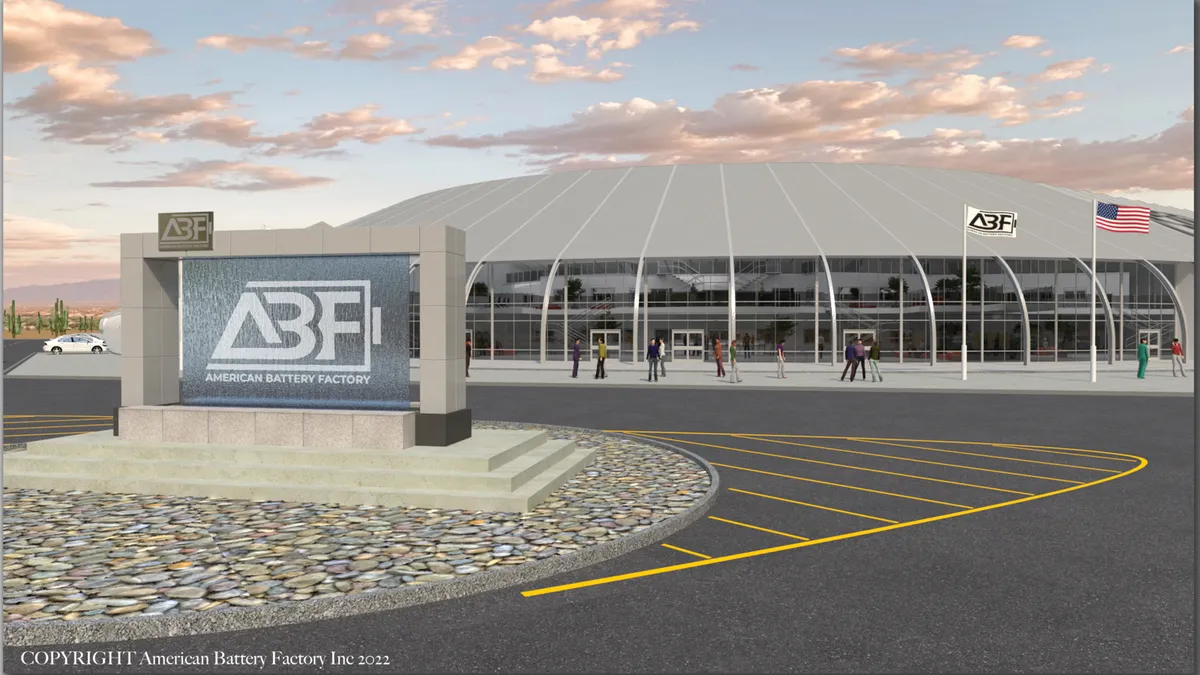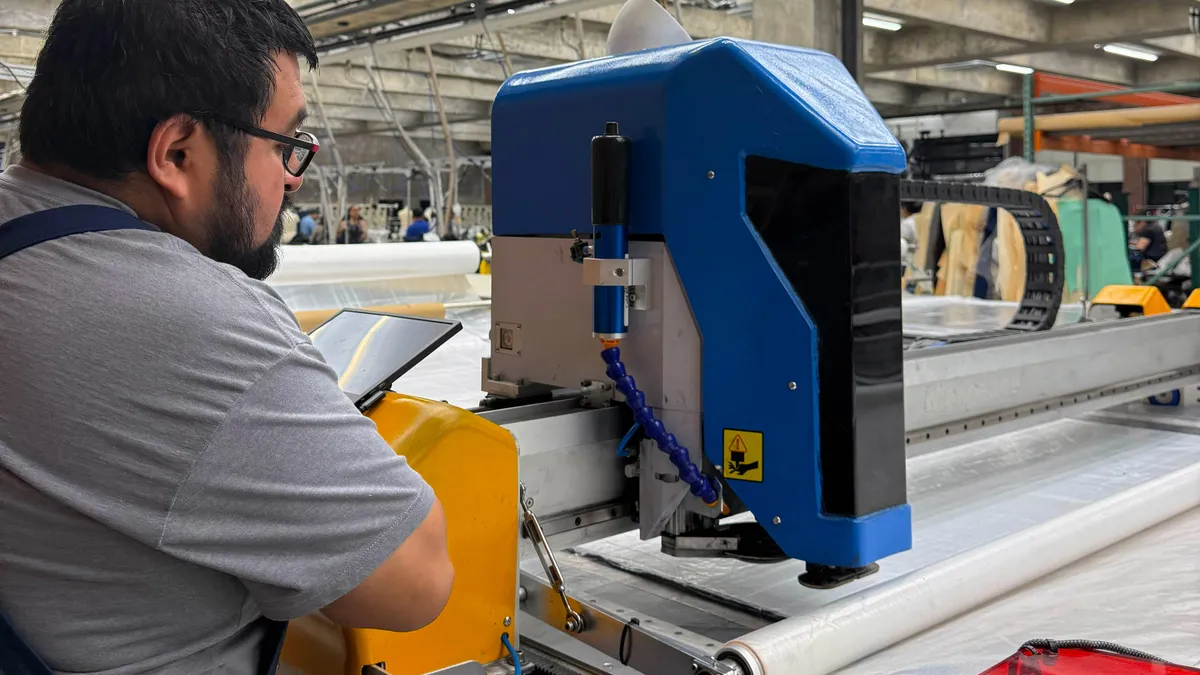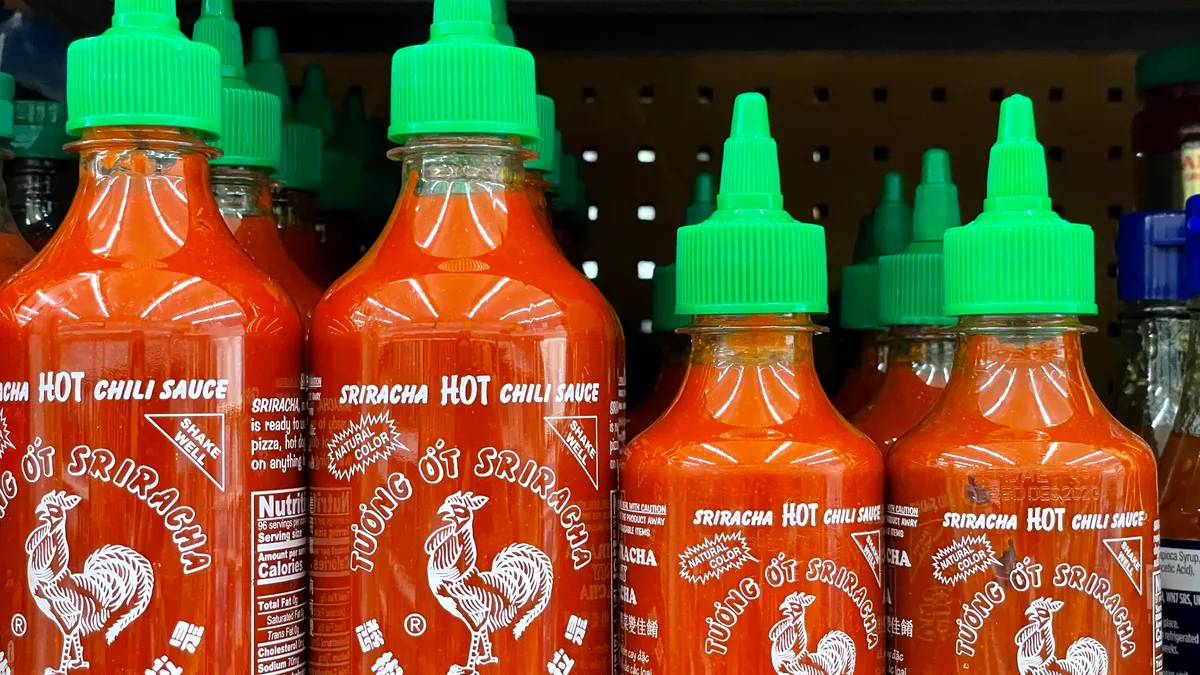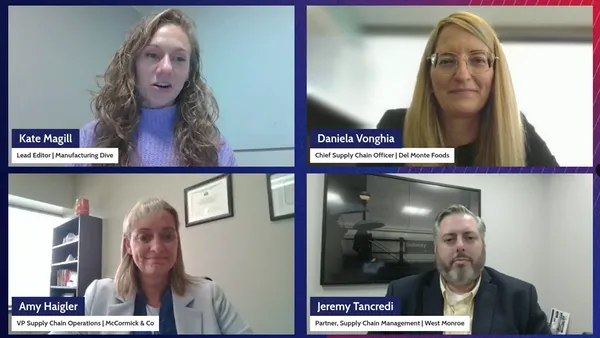Dive Brief:
- Phosphate producer First Phosphate signed a deal with lithium ion phosphate battery maker American Battery Factory Wednesday for the production and supply of LFP cathode active material in North America.
- The supply deal includes annual production of 40,000 tons of the LFP battery material to support the battery storage sector on the continent, according to an announcement.
- The agreement is set for 2028, with First Phosphate supplying American Battery Factory upcoming battery manufacturing facility in Tucson, Arizona.
Dive Insight:
Based in Quebec, First Phosphate began its preliminary economic assessments of its planned mine in Saguenay, Quebec, earlier this year and is in the midst of readying the site for production. The company is currently targeting for the mine to open in 2028, according to CEO John Passalacqua.
The phosphate producer's agreement with American Battery Factory is part of its plan to directly integrate into LFP battery companies' supply chains in North America. Late last year the battery maker kicked off a plan to build a series of U.S. factories in the next three years, and the two companies plan to work together to meet new demand needs, according to the release.
Given First Phosphate's vertical integration supply chain model, the company's raw materials will be integrated directly into LFP CAM produced for American Battery Factory.
The two companies also plan to collaborate on the creation of a North American battery ecosystem, including the possibility of locating an LFP cathode active material production facility and battery cell plants at the Port of Saguenay, Quebec, Passalacqua said.
"Stationary energy storage and telecom applications are already an established market application for LFP batteries in North America alongside the rapidly expanding electric vehicle sector," Passalacqua said in a statement. "Launching our LFP raw materials strategy with a focused partner like ABF with existing LFP product demand in North America allows us to enter the market in prudent and pragmatic fashion."
First Phosphate and American Battery Factory's deal is inked as the continent's phosphate production market is beginning to take on new prominence with the use of LFP batteries.
The mineral, which is more often produced for use in fertilizer in the U.S., is processed in the country by five companies at nine mines in four states, according to the U.S. Geological Survey. These include Mosaic, Nutrien, J.R. Simplot, Bayer and Itafos, operating in Florida, North Carolina, Indiana and Utah.
Given the small size of the domestic production market, much of the battery-grade phosphate in the U.S. is imported. China led the world in phosphate mine production last year with 85 million metric tons, followed by Morocco at 40 million metric tons and the U.S. with 21 million metric tons, according to the USGS.
But as more companies like Ford and ICL make plans for LFP battery facilities, new suppliers are emerging in the market to meet a rising demand for the material. New sources of supply may also be needed for battery-grade phosphate as companies "deplete" North American reserves of the material, Passalacqua said in an interview with Manufacturing Dive earlier this year.
"People think that because phosphate is readily available in different formats that they're going to be readily available for the LFP battery," Passalacqua said. "But . . .it's not like taking a bag of fertilizer and dumping it in the car. People are not aware of that, they're not aware of the pinch points that are coming.












